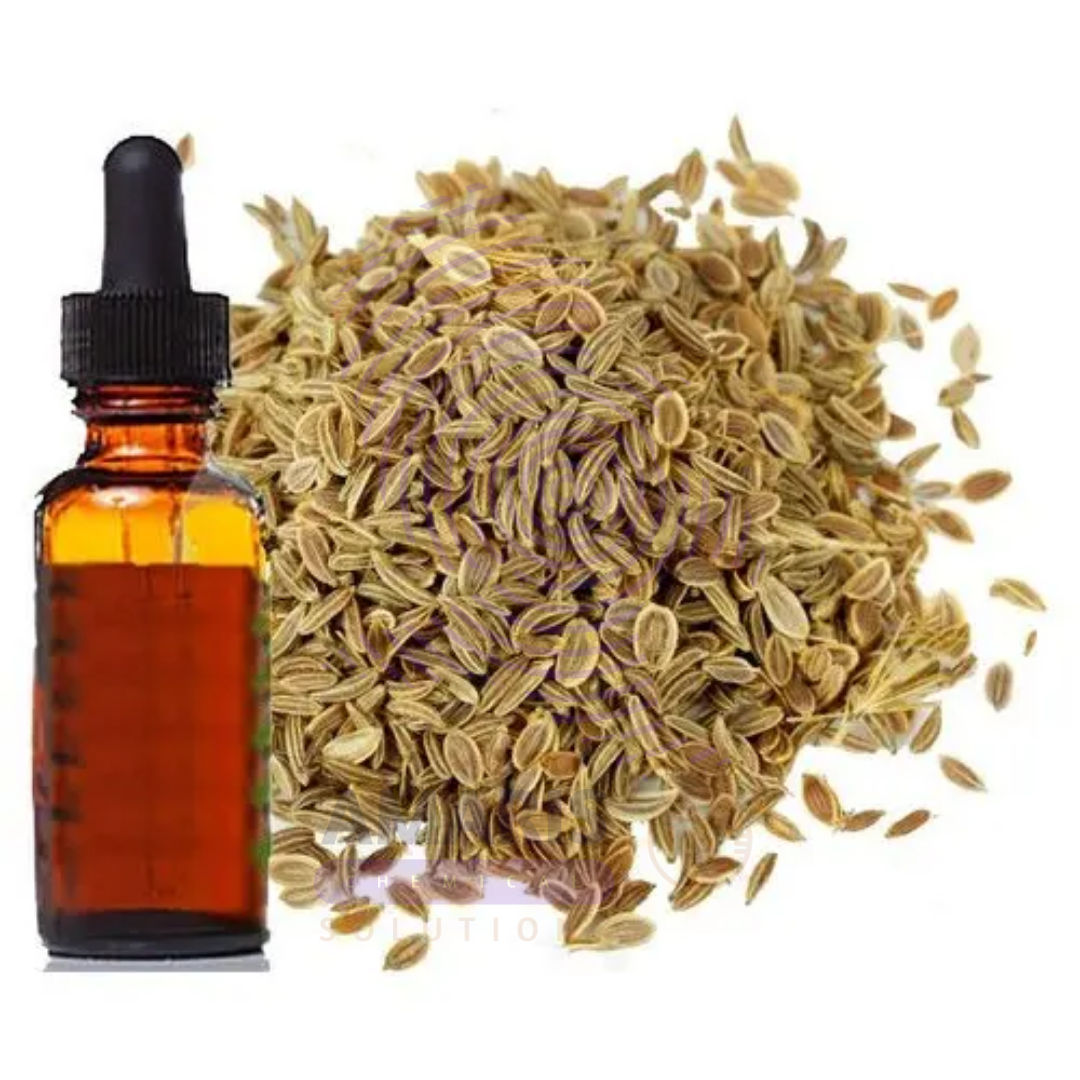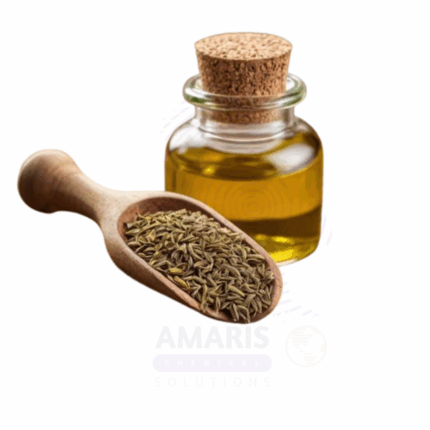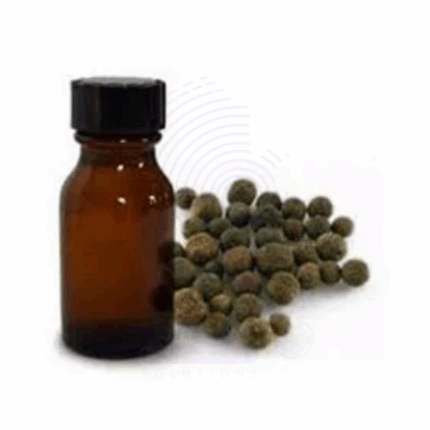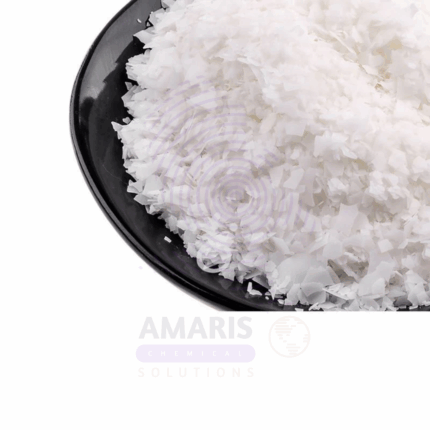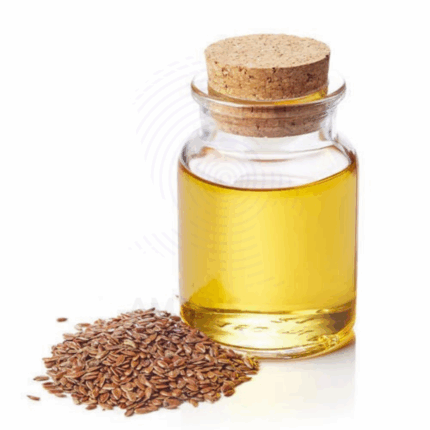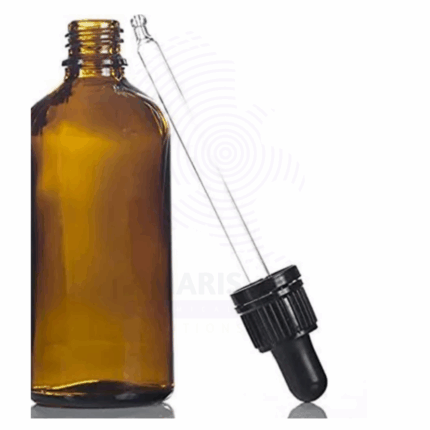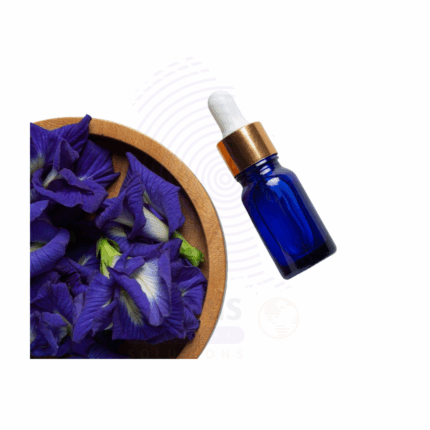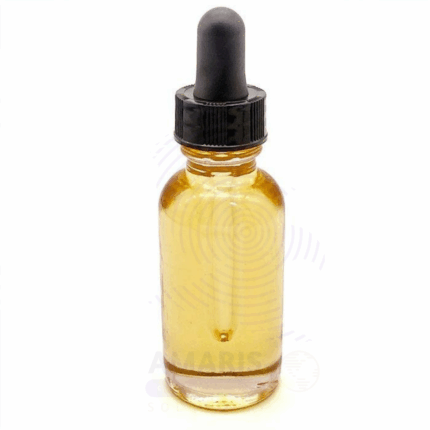
Ammonium II Sulphate Extra Pure
$ 18.00 Original price was: $ 18.00.$ 17.89Current price is: $ 17.89.

Aloe Vera Fragrance Oil
$ 25.00 Original price was: $ 25.00.$ 24.83Current price is: $ 24.83.
Celery Seed Oil
Whatsapp Order
Celery Seed Oil is a concentrated essential oil obtained by steam distillation from the dried seeds of the Apium graveolens plant. It features a warm, spicy, earthy aroma with slightly bitter undertones and is rich in compounds like limonene, sedanolide, and selinene. Traditionally used in natural medicine for its anti-inflammatory, digestive, and diuretic properties, Celery Seed Oil is also increasingly recognized in cosmetic, aromatherapy, and flavoring applications. It is distinct from celery leaf oil, carrying a denser, more resinous aromatic profile and a stronger pharmacological potency.
Description
Table of Contents
Toggle
Celery Seed Oil
Primary Uses
- Cosmetics and Personal Care
- Added to massage oils and topical balms for joint and muscle discomfort
- Incorporated in detox and firming body creams for anti-inflammatory effects
- Used in oil blends for managing skin conditions like acne or eczema
- Occasionally included in hair and scalp treatments for soothing flaky skin
- Used in men’s grooming products for its spicy, earthy base note
- Aromatherapy
- Diffused to promote mental clarity and reduce nervous tension
- Used in massage blends targeting fluid retention and bloating
- Supports wellness routines related to liver function and detoxification (topical only)
- Pharmaceuticals and Natural Remedies
- Traditionally used externally for rheumatism, arthritis, and gout relief
- Sometimes applied in salves or oils to alleviate menstrual discomfort
- Incorporated into traditional compresses and ointments for swelling and inflammation
- Food & Beverage Industry
- Used in trace amounts to flavor savory products such as soups, sauces, and spice blends
- Included in pickling spices and seasoning oils for its distinctive spicy-bitter character
- Applied in flavoring liqueurs, bitters, and aperitifs in specialty beverage formulations
Secondary Uses
- Perfumery and Fragrance
- Used in niche and functional fragrances as a green, spicy fixative
- Enhances the complexity of herbal, fougère, and woody scent profiles
- Household and Cleaning Products
- Used in botanical cleaning sprays and air fresheners for its earthy, herbaceous profile
- Incorporated into detox-themed aromatics and oil diffusers
- Pet and Animal Care (Caution)
- Sometimes used in diluted flea repellents for dogs (use with caution and proper dilution)
KEY PRODUCT FEATURES
1. Basic Identification Attributes
- Botanical Source: Apium graveolens (seeds)
- Common/Trade Name: Celery Seed Oil
- INCI Name: Apium Graveolens Seed Oil
- CAS Number: 8015-90-5
- HS Code: 3301.29
- Synonyms: Celery Essential Oil, Celery Seed Essential Oil, Apium Oil (Seed)
2. Physical & Chemical Properties
- Physical State: Liquid
- Color & Odor: Pale yellow to light brown; spicy, warm, earthy, and slightly bitter scent
- Solubility: Insoluble in water; soluble in alcohol and fixed oils
- Main Components: Limonene, sedanolide, selinene, β-pinene, myrcene
- Refractive Index: ~1.475 – 1.495
- Specific Gravity: ~0.870 – 0.910
- Flash Point: ~60–65°C
3. Safety & Hazard Attributes
- GHS Classification: May cause skin irritation or sensitization in concentrated form
- Toxicity: Low when used topically in proper dilution; not for ingestion in essential oil form
- Allergen Information: Contains natural allergens such as limonene and myrcene
- Exposure Limits: Follow IFRA dermal usage limits for safety
4. Storage & Handling Attributes
- Storage Conditions: Store in tightly sealed containers, away from heat, light, and moisture
- Container Type: Amber glass bottles or lined metal drums
- Shelf Life: 2–3 years if properly stored
- Handling Precautions: Avoid contact with eyes; wear gloves and protective clothing for bulk use
5. Regulatory & Compliance Attributes
- IFRA-compliant for cosmetic and fragrance applications
- FDA-recognized as GRAS (Generally Recognized as Safe) for flavor use in foods (in trace amounts)
- Not approved for medicinal ingestion in essential oil form
6. Environmental & Health Impact
- Biodegradability: Readily biodegradable
- Ecotoxicity: Low in diluted applications
- Bioaccumulation: Not anticipated under normal conditions
SAFETY HANDLING PRECAUTIONS
Safety Handling Precautions
- PPE Required: Gloves, goggles, and protective clothing when handling in bulk
- Handling Guidelines: Dilute before topical use; avoid direct contact with eyes and mucous membranes
First Aid Measures
- Inhalation: Move to fresh air; seek medical advice if symptoms persist
- Skin Contact: Rinse with soap and water; discontinue use if irritation develops
- Eye Contact: Rinse thoroughly with water for at least 15 minutes
- Ingestion: Do not induce vomiting; seek medical attention immediately
Firefighting Measures
- Fire Hazards: Flammable liquid
- Extinguishing Media: Dry chemical, foam, CO₂
- Special Precautions: Use full protective gear and breathing apparatus
- Hazardous Combustion Products: Carbon oxides and aromatic vapors
Related products
Ajowan oil
Ajowan Oil, also known as Ajwain Oil or Trachyspermum Ammi Oil, is an essential oil obtained by steam distillation of the seeds of the Trachyspermum ammi plant. With a strong, pungent, thyme-like aroma, Ajowan Oil is rich in thymol—a powerful compound known for its antiseptic, antimicrobial, and digestive properties. Traditionally used in Ayurvedic and Unani medicine, Ajowan Oil is valued today across food preservation, pharmaceuticals, and natural personal care formulations.
This oil exhibits broad-spectrum antimicrobial effects and is widely used in therapeutic balms, oral care, digestive tonics, and antiseptic blends. It also finds applications in fragrance formulations that benefit from its spicy, herbal character. Its potent biological activity makes it effective in natural pest control and disinfectant preparations.
Allspice Pimento Berry Oil
Allspice Pimento Berry Oil is a warm, spicy-sweet essential oil steam-distilled from the dried berries of the Pimenta dioica plant, native to the Caribbean and Central America. Known for its rich, clove-like aroma with hints of cinnamon, nutmeg, and pepper, the oil derives its name from its resemblance to a blend of “all spices.” It contains high concentrations of eugenol and other phenolic compounds, lending it powerful antiseptic, analgesic, and aromatic properties.
Widely used in personal care, massage oils, pharmaceutical balms, and perfumery, Allspice Oil is prized for its warming and comforting scent as well as its therapeutic action. It also finds applications in culinary essence formulations, natural insect repellents, and wellness therapies.
Almond Bitter Oil
Almond Bitter Oil, derived from the kernels of bitter almonds (Prunus amygdalus var. amara), is an essential oil known for its sharp, nutty, and marzipan-like aroma. This oil is produced through steam distillation of crushed bitter almond kernels and contains a naturally occurring compound called benzaldehyde, which gives it its characteristic scent. In purified form (free of hydrogen cyanide), bitter almond oil is used in fragrance, flavoring, and pharmaceutical applications.
Due to its potent aroma and biochemical properties, it is widely used in perfumery, baked goods flavoring (in controlled quantities), aromatherapy, and traditional topical remedies. It is important to distinguish between natural bitter almond oil, which must be detoxified, and synthetic benzaldehyde, which is commonly used as a substitute in commercial formulations.
Almond Wax
Almond Wax is a natural, plant-based wax derived from the hydrogenation of almond oil (Prunus amygdalus dulcis). It is a creamy to white, semi-solid wax with a mild, nutty scent and excellent emollient properties. Almond Wax is rich in fatty acids and has a smooth, soft texture, making it ideal for use in cosmetic, personal care, and candle formulations.
Due to its gentle consistency, skin-friendly profile, and moisturizing capabilities, Almond Wax is widely used in body butters, balms, lip care products, massage bars, and artisan soaps. It functions as a natural alternative to petroleum-based waxes and provides structure, viscosity, and glide to formulations. It also finds application in soft wax blends for natural candle products.
Ambrette Seed Oil
Ambrette Seed Oil is a rare, aromatic essential oil derived from the seeds of the Abelmoschus moschatus plant. Known for its rich, musky, slightly sweet, and floral scent, Ambrette Seed Oil is often considered a botanical alternative to animal-derived musk. It is widely prized in high-end perfumery, natural cosmetic formulations, and aromatherapy for its warm, sensual, and long-lasting aroma.
This oil is rich in ambrettolide and farnesol, compounds that lend it a delicate musky note without the synthetic harshness of artificial musks. Ambrette Seed Oil is non-toxic and safe for topical use when diluted, making it ideal for fine fragrances, massage oils, and therapeutic blends.
Basil Exotic oil
Basil Exotic Oil is a steam-distilled essential oil extracted from the leaves of the Ocimum basilicum plant, specifically cultivated for its high linalool and methyl chavicol (estragole) content. Known for its sweet, herbaceous, and slightly spicy aroma, Basil Exotic Oil offers powerful aromatic and therapeutic properties. It is widely used in perfumery, cosmetics, personal care products, and aromatherapy for its stimulating, clarifying, and refreshing effects.
The oil’s high potency and distinctive scent make it a preferred choice in high-end fragrances, hair care products, and massage blends. It is also appreciated for its antibacterial, antifungal, and anti-inflammatory characteristics, making it valuable in natural wellness and skincare formulations.
Blue Tansy Oil
Blue Tansy Oil is a rare and highly sought-after essential oil obtained via steam distillation of the flowers of Tanacetum annuum, a Moroccan chamomile species. Known for its deep indigo-blue color and distinctive sweet, herbaceous aroma with subtle fruity undertones, this oil is rich in chamazulene — a powerful anti-inflammatory compound that gives it its characteristic blue hue.
Blue Tansy Oil is celebrated in the cosmetic and personal care industry for its calming, soothing, and skin-balancing effects. It is especially beneficial in formulations for sensitive, irritated, or inflamed skin. In aromatherapy, it is valued for promoting relaxation and emotional ease. Its rarity and potency make it a premium choice for high-end skincare, therapeutic blends, and luxury personal care products.
Calmintha Oil
Calmintha Oil is an aromatic essential oil derived through steam distillation of the aerial parts of Calamintha nepeta or closely related species within the Calamintha genus. Also known as lesser calamint, Calmintha is a herbaceous plant known for its minty, slightly camphoraceous fragrance with subtle floral undertones. The oil is rich in compounds such as pulegone, menthone, and isomenthone, which contribute to its invigorating, clarifying, and antimicrobial properties.
Used in traditional herbal medicine, perfumery, and aromatherapy, Calmintha Oil offers refreshing aromatic effects and is frequently utilized in respiratory blends, skin formulations, and natural cleaning products. Due to its high pulegone content, topical use should be limited and well-diluted.


 Preservatives(food)
Preservatives(food) Flavor Enhancers
Flavor Enhancers Acidulants
Acidulants Sweeteners
Sweeteners Antioxidants
Antioxidants Colorants(food)
Colorants(food) Nutraceutical Ingredients (food)
Nutraceutical Ingredients (food) Nutrient Supplements
Nutrient Supplements Emulsifiers
Emulsifiers
 Collectors
Collectors Dust Suppressants
Dust Suppressants Explosives and Blasting Agents
Explosives and Blasting Agents Flocculants and Coagulants
Flocculants and Coagulants Frothers
Frothers Leaching Agents
Leaching Agents pH Modifiers
pH Modifiers Precious Metal Extraction Agents
Precious Metal Extraction Agents
 Antioxidants(plastic)
Antioxidants(plastic) Colorants (Pigments, Dyes)
Colorants (Pigments, Dyes) Fillers and Reinforcements
Fillers and Reinforcements Flame Retardants
Flame Retardants Monomers
Monomers Plasticizers
Plasticizers Polymerization Initiators
Polymerization Initiators Stabilizers (UV, Heat)
Stabilizers (UV, Heat)
 Antifoaming Agents
Antifoaming Agents Chelating Agents
Chelating Agents Coagulants and Flocculants
Coagulants and Flocculants Corrosion Inhibitors
Corrosion Inhibitors Disinfectants and Biocides
Disinfectants and Biocides Oxidizing Agents
Oxidizing Agents pH Adjusters
pH Adjusters Scale Inhibitors( water)
Scale Inhibitors( water)
 Antioxidants(cosmetic)
Antioxidants(cosmetic) Emollients
Emollients Fragrances and Essential Oils
Fragrances and Essential Oils Humectants
Humectants Preservatives
Preservatives Surfactants(cosmetic)
Surfactants(cosmetic) Thickeners
Thickeners UV Filters
UV Filters
 Fertilizers
Fertilizers Soil Conditioners
Soil Conditioners Plant Growth Regulators
Plant Growth Regulators Animal Feed Additives
Animal Feed Additives Biostimulants
Biostimulants Pesticides (Herbicides, Insecticides, Fungicides)
Pesticides (Herbicides, Insecticides, Fungicides)
 Active Pharmaceutical Ingredients (APIs)
Active Pharmaceutical Ingredients (APIs) Excipients
Excipients Solvents(pharmaceutical)
Solvents(pharmaceutical) Antibiotics
Antibiotics Antiseptics and Disinfectants
Antiseptics and Disinfectants Vaccine Adjuvants
Vaccine Adjuvants Nutraceutical Ingredients (pharmaceutical)
Nutraceutical Ingredients (pharmaceutical) Analgesics & Antipyretics
Analgesics & Antipyretics
 Analytical Reagents
Analytical Reagents Solvents(lab)
Solvents(lab) Chromatography Chemicals
Chromatography Chemicals Spectroscopy Reagents
Spectroscopy Reagents microbiology-and-cell-culture-reagents
microbiology-and-cell-culture-reagents Molecular Biology Reagents
Molecular Biology Reagents Biochemical Reagents
Biochemical Reagents Inorganic and Organic Standards
Inorganic and Organic Standards Laboratory Safety Chemicals
Laboratory Safety Chemicals Specialty Laboratory Chemicals(Special Laboratory Equipment)
Specialty Laboratory Chemicals(Special Laboratory Equipment)
 Demulsifiers
Demulsifiers Hydraulic Fracturing Fluids
Hydraulic Fracturing Fluids Scale Inhibitors(oil)
Scale Inhibitors(oil) Surfactants(oil)
Surfactants(oil) Drilling Fluids
Drilling Fluids
 Dyes and Pigments
Dyes and Pigments Bleaching Agents
Bleaching Agents Softening Agents
Softening Agents Finishing Agents
Finishing Agents Antistatic Agents
Antistatic Agents
 Admixtures
Admixtures Waterproofing Agents
Waterproofing Agents Sealants and Adhesives
Sealants and Adhesives Curing Compounds
Curing Compounds Concrete Repair Chemicals
Concrete Repair Chemicals Anti-Corrosion Coatings
Anti-Corrosion Coatings
 Surfactants(cleaning)
Surfactants(cleaning) Builders
Builders Enzymes
Enzymes Solvents (Cleaning)
Solvents (Cleaning) Fragrances
Fragrances
 Electronic Chemicals
Electronic Chemicals Catalysts
Catalysts Lubricants
Lubricants Photographic Chemicals
Photographic Chemicals Refrigerants
Refrigerants Automotive chemicals
Automotive chemicals Pyrotechnic Chemicals
Pyrotechnic Chemicals
 Biodegradable Surfactants
Biodegradable Surfactants Bio-based Solvents
Bio-based Solvents Renewable Polymers
Renewable Polymers Carbon Capture Chemicals
Carbon Capture Chemicals Wastewater Treatment Chemicals
Wastewater Treatment Chemicals
 Pigments
Pigments Solvents(paint)
Solvents(paint) Specialty Coatings
Specialty Coatings Binders/Resins
Binders/Resins Additives
Additives Driers
Driers Anti-Corrosion Agents
Anti-Corrosion Agents Functional Coatings
Functional Coatings Application-Specific Coatings
Application-Specific Coatings
 Leavening Agents
Leavening Agents Dough Conditioners
Dough Conditioners Flour Treatments
Flour Treatments Fat Replacers
Fat Replacers Decoratives
Decoratives Preservatives(baking)
Preservatives(baking)
 Plasticizers & Softeners
Plasticizers & Softeners Reinforcing Agents
Reinforcing Agents Adhesion Promoters
Adhesion Promoters Vulcanizing Agents
Vulcanizing Agents Antidegradants
Antidegradants Blowing Agents
Blowing Agents Fillers & Extenders
Fillers & Extenders Accelerators & Retarders
Accelerators & Retarders